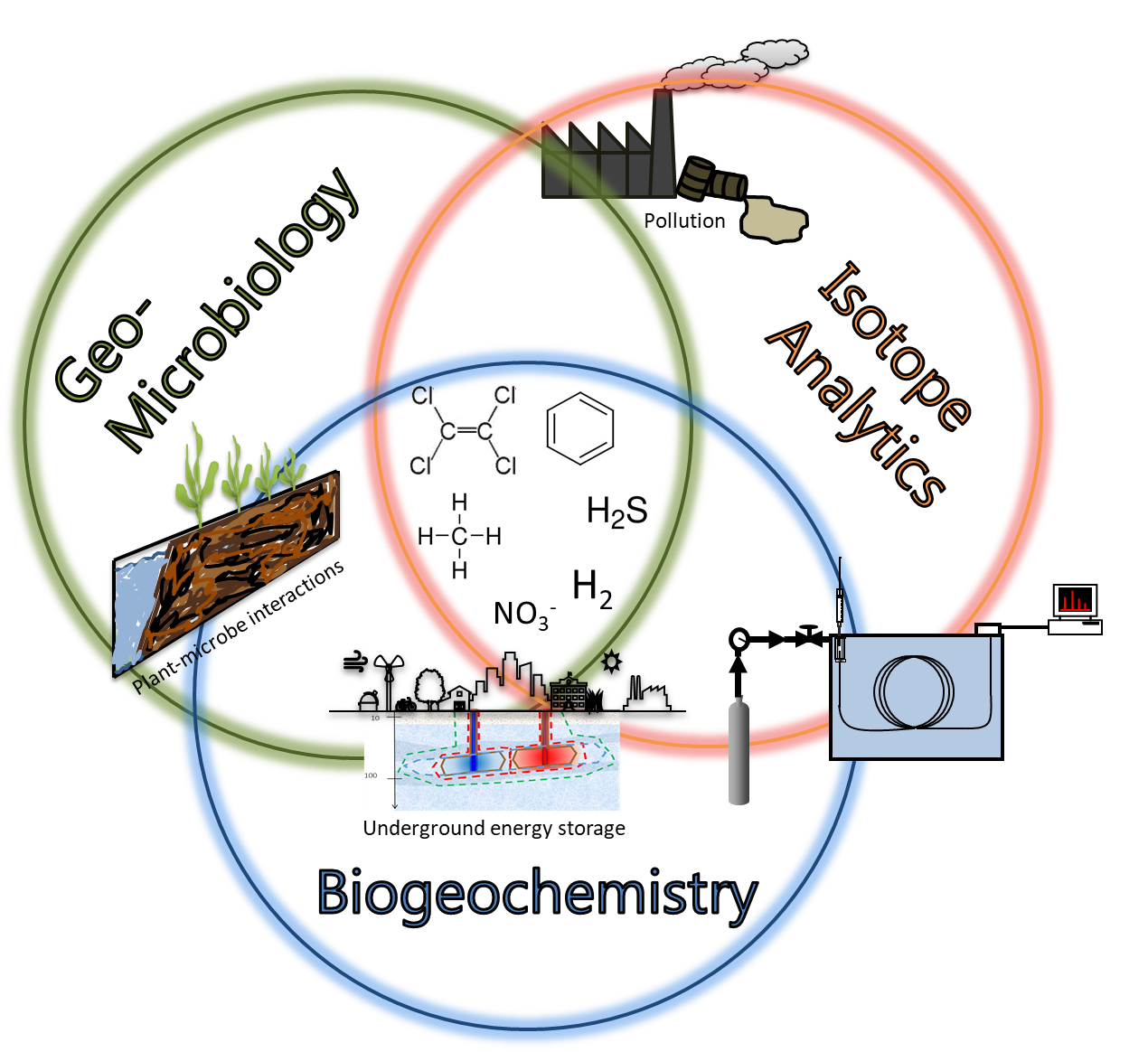Geomicrobiology

Focus: Characterization of biogeochemical processes in subsurface systems
We investigate biogeochemical, mainly microbe-driven processes of major element cycles (e.g., carbon, nitrogen, sulphur) in subsurface systems, especially those taking place in the absence of molecular oxygen. Research questions related to underground storage of renewable energy and biodegradation of hydrocarbons and halogenated organics in aquifers are a major focus. Techniques based on application of stable isotopes - compound specific stable isotope analysis (CSIA) and stable isotope probing (SIP) –are essential tools of our experimental research.
Keywords
Characterizing biogeochemical processes at different scales (from laboratory to field scale)
Identifying contaminant-converting microbes in different environmental habitats (subsurface, plant-soil systems), elucidating their transformation pathways and deriving methods for monitoring their in situ presence and activity
Assessing the impact of aquifer thermal energy storage and related technologies on the indigenous microbial communities and identification and characterization of temperature-adapted microorganisms
Risk assessment of underground dihydrogen storage in salt caverns and porous aquifers with regard to microbial dihydrogen oxidation processes
Team
| Group leader | Dr. Carsten Vogt |
| Senior Scientist | Dr. Ivonne Nijenhuis |
| Researcher | Jan Birkigt |
| PhDs |
Shuting Li Zhenyu Wang Nina Sophie Keller Xinzhu Yao |
| Students or HIWIs |
Finn Höfgen Melissa Pongratz |
| Technician | Florian Tschernikl |
